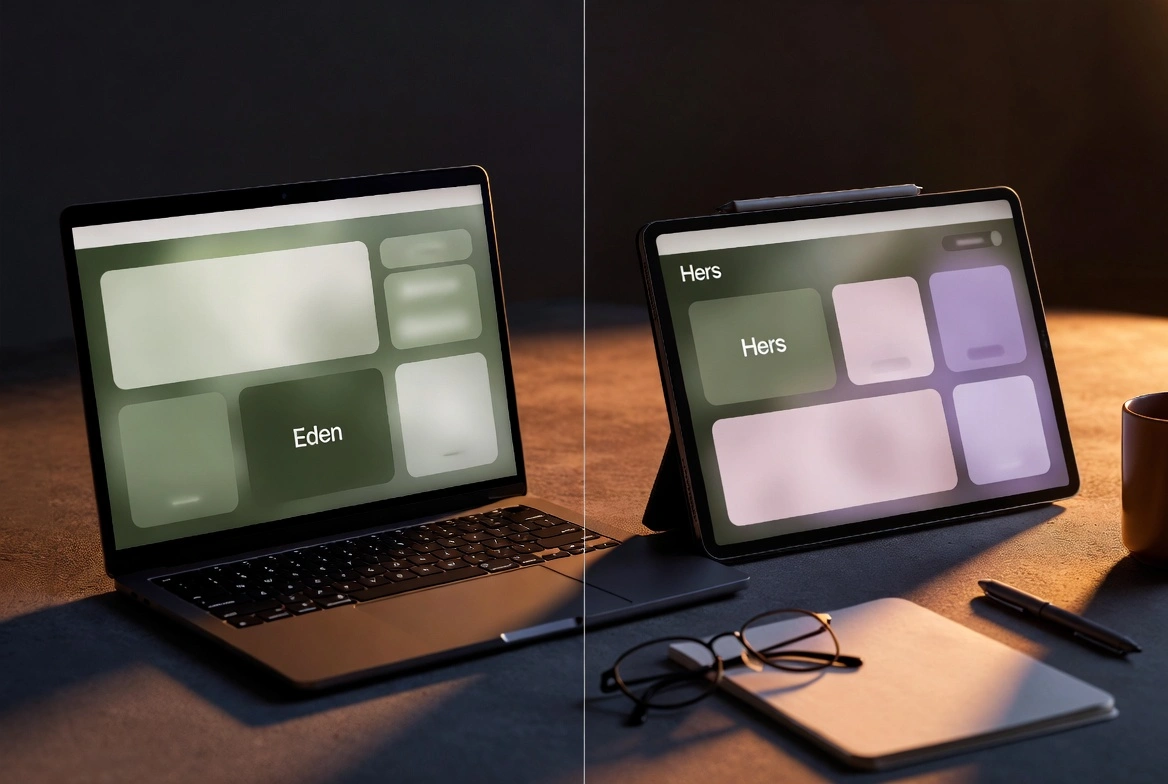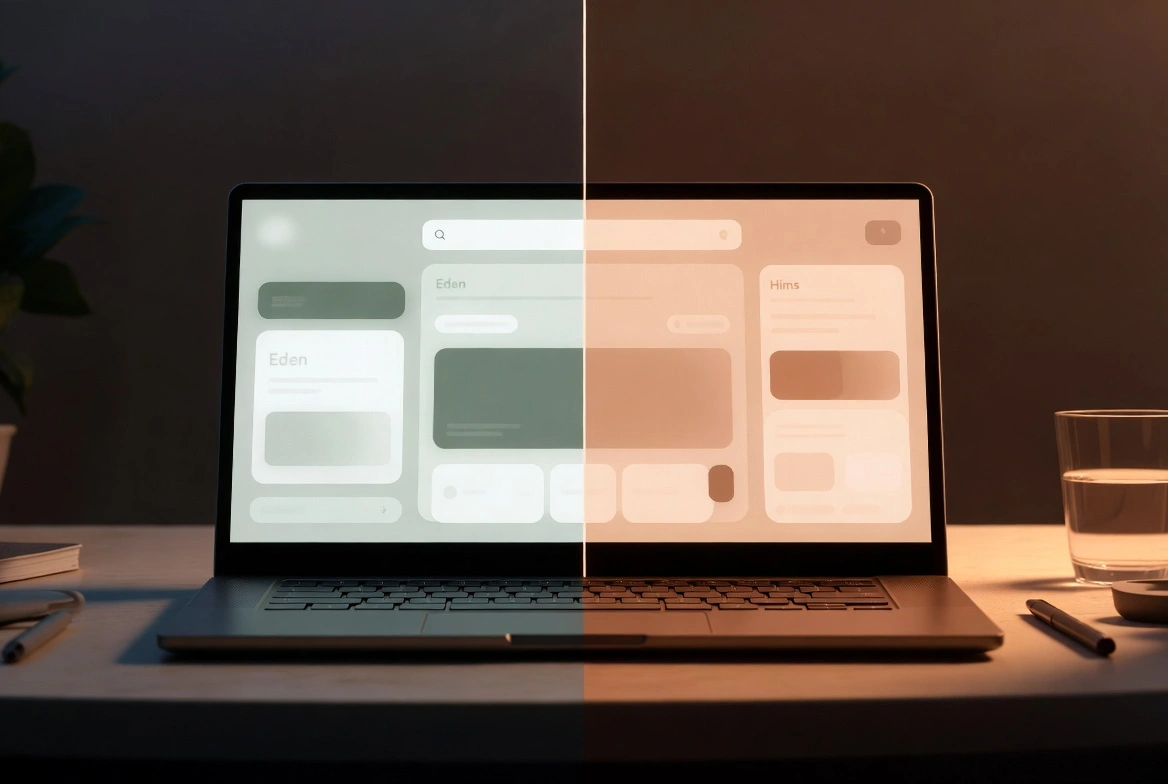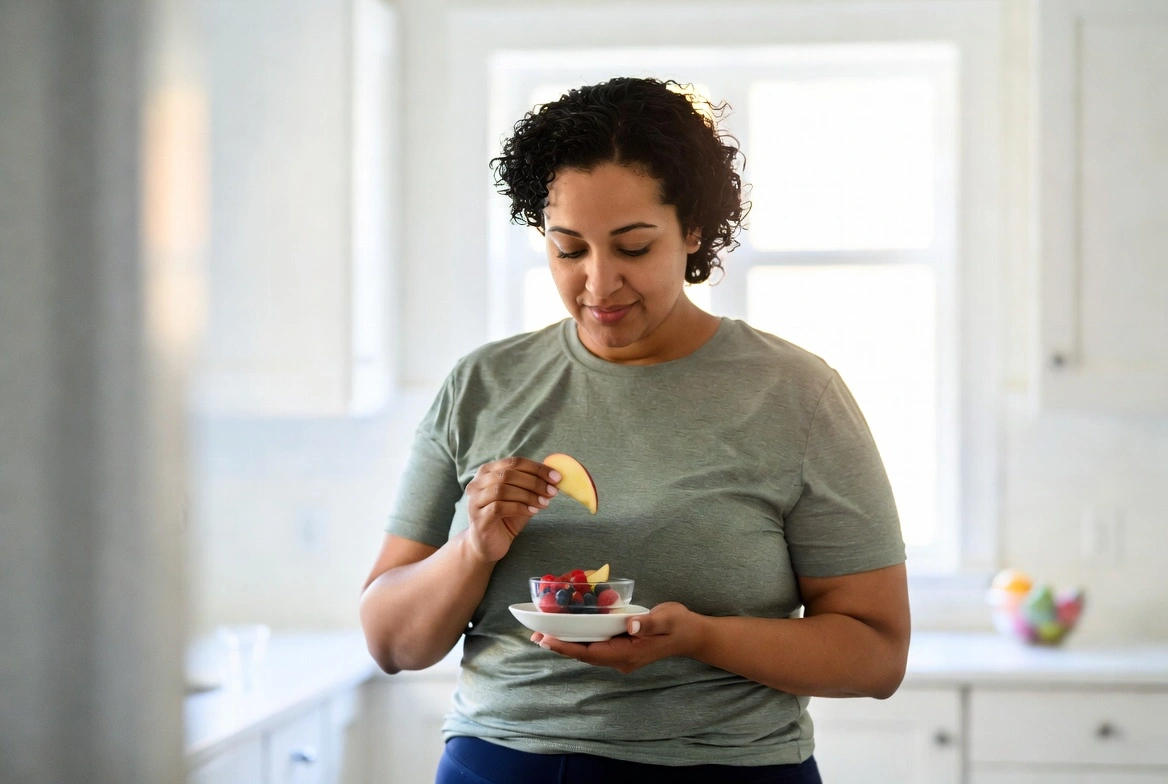Ozempic® and Alcohol: Safety, Risks, and Expert Guidelines
Combining Ozempic® and alcohol can affect blood sugar, cause side effects, and reduce effectiveness. Always consult your doctor before drinking.
Ozempic® and alcohol don't have dangerous direct interactions. Both substances can affect blood sugar levels and increase side effects [1].
Patients with well-controlled diabetes may typically consume alcohol in moderation. Please consult your licensed healthcare provider for more detailed guidance.
Taking Ozempic® with alcohol needs careful monitoring. These substances may cause blood sugar fluctuations that might lead to hypoglycemia or hyperglycemia.
Recent studies show that Ozempic® might reduce alcohol cravings. Clinical reports suggest changes in drinking patterns.
You should altogether avoid alcohol if you have:
- Uncontrolled diabetes
- High triglycerides
- Neuropathy
- Pancreatitis
Side effects like nausea and digestive problems may become worse when you mix Ozempic® with alcohol. Both substances irritate the stomach lining and slow stomach emptying [3].
Research suggests that patients generally experience fewer alcohol cravings on Ozempic®. Studies show a 36% lower risk of alcohol-related hospital visits [4].
Blood sugar levels need regular checking when drinking alcohol. Always eat while drinking to prevent hypoglycemia. Note that low blood sugar symptoms can be mistaken for alcohol effects.
Patients taking Ozempic® often ask about drinking alcohol while on medication. The safety of this combination needs attention since alcohol and Ozempic® may affect treatment results and health.
Understanding the relationship between Ozempic® and alcohol is important to patient safety. Mixing these two substances affects each person differently. Blood sugar levels might fluctuate, and you may face a higher risk of side effects. This article gets into safety factors, possible risks, and what you should know if you take Ozempic® and drink alcohol.
You'll discover practical ways to reduce risks while taking Ozempic® and drinking alcohol. This article takes a look at safe drinking guidelines, possible side effects, and signs you should contact your doctor. Your Ozempic® treatment plan might need adjustments based on your alcohol consumption habits. Please note this is not medical advice;
Can You Drink Alcohol While Taking Ozempic®?
Scientists have recently studied how Ozempic® and alcohol work together in the body. The FDA hasn't specifically warned against mixing Ozempic® with alcohol, but research has revealed some interesting connections between the two.
A large study with more than 80,000 patients who had obesity showed something remarkable. GLP-1 medications like Ozempic® cut the risk of alcohol use disorder by about 50% compared to other anti-obesity medications [6]. This discovery points to benefits that go beyond the drug's main purpose.
Your liver plays a vital role when you mix Ozempic® and alcohol. The body prioritizes processing alcohol first, which can change how well it manages blood sugar levels [7]. On top of that, both substances can affect your blood glucose levels and might cause dangerous swings.
You should be extra careful if you have:
- Uncontrolled diabetes
- A family history of pancreatitis
- Other pancreas conditions
Many patients say they feel less desire to drink after starting Ozempic®. This observation has led Novo Nordisk to study how semaglutide might affect drinking patterns. These early findings could help us better understand the medication's full range of effects.
How Ozempic® and Alcohol Interact in Your Body
The body's response to Ozempic® and alcohol together gives us valuable insights into their combined effects. Scientists have discovered several complex ways in which these substances work together.
Ozempic® may benefit high blood pressure by improving blood sugar control. Still, individuals with hypertension should monitor their condition and consult a healthcare provider for personalized treatment advice.
How Ozempic® and Alcohol Affect Blood Sugar Levels
Blood glucose regulation changes when Ozempic® and alcohol mix in your system. These substances can cause significant blood sugar swings when combined. Your liver stops releasing glucose into your bloodstream because of alcohol. This happens while Ozempic® continues to lower your blood sugar levels. The combined effect raises the risk of hypoglycemia, especially if you take other diabetes medications like Metformin.
Safety of Metformin and Ozempic® when used together is an important consideration. Metformin and Ozempic® are often used together to manage type 2 diabetes, as metformin helps improve insulin sensitivity. At the same time, Ozempic® enhances blood sugar control and promotes weight loss, providing a complementary approach to treatment.
Studies show that alcohol leads to sudden changes in blood sugar levels. These changes become stronger with Ozempic® in your system [9]. The way Ozempic® slows down your stomach emptying could also change how your body absorbs and processes alcohol [10].
Side Effects of Combining Ozempic® and Alcohol
Headaches are a common side effect of Ozempic®, often occurring as the body adjusts to the medication. Still, they typically subside as treatment continues or can be managed with over-the-counter pain relief under the guidance of a healthcare provider.
Taking Ozempic® with alcohol can make several side effects worse:
- Gastrointestinal Effects: Common issues like nausea and vomiting become more severe with alcohol. Ground examples show that even small amounts of alcohol can cause strong reactions. Cases show severe vomiting after drinking just a little alcohol.
- Pancreatic Concerns: Your pancreas reacts to both substances. Alcohol often causes pancreatitis, which also appears as a profound potential side effect of Ozempic®.
New research shows that Ozempic® might change how your brain responds to alcohol through its effects on the dopamine reward system. The medication attaches to specific brain areas that control reward responses. This could change how your body processes alcohol and how you experience its effects.
{{primary-cta}}
Is It Safe to Consume Alcohol on Ozempic®?
Scientific research hasn't found any direct dangerous interactions between Ozempic® and alcohol, though doctors typically suggest being careful when mixing these substances [11]. Recent studies have revealed some interesting findings about how safe this combination is and what it means for patients.
Several factors determine if you may safely drink alcohol while taking Ozempic®. Both substances can affect your liver's function and how your body regulates blood sugar. Type 2 diabetes patients need extra alertness because both substances can lower blood sugar levels and might cause hypoglycemia [12].
Key safety factors to think over include:
- Your liver might work slower when processing both substances
- Blood sugar levels become harder to predict
- You may face more digestive system problems
- This could affect your weight loss progress
Scientists have made a surprising discovery: Ozempic® might help people drink less alcohol. Data from 228,000 people showed that those taking semaglutide had far fewer alcohol-related hospital visits [13]. This finding has sparked new research into Ozempic's potential role in treating alcohol use disorder.
Moderation becomes vital if you decide to drink while taking Ozempic®. Discuss with your licensed healthcare provider to determine your limits based on your health status and treatment goals. Make sure to ask your doctor about drinking alcohol while using Ozempic®.
You need to be extra careful or avoid alcohol completely while taking Ozempic® if you have uncontrolled diabetes, liver problems, or high triglycerides.
Ozempic® may be covered by insurance, but coverage varies depending on the plan, and patients may need to check with their insurer or healthcare provider to confirm if it is included and whether prior authorization is required.
Guidelines for Drinking Alcohol While on Ozempic®
Specific guidelines help minimize potential risks when Ozempic® patients drink alcohol. Medical experts suggest clear boundaries and structured protocols for drinking alcohol.
Ozempic® and Alcohol: Safe Limits and Types to Think Over
An Ozempic® diet typically emphasizes a balanced, nutrient-rich eating plan that supports weight loss and blood sugar control, focusing on whole foods like vegetables, lean proteins, and healthy fats while minimizing processed foods and sugars.
The U.S. Department of Health and Human Services allows moderate alcohol consumption -generally one drink daily for women and two drinks daily for men. Your best alcoholic beverage choices include:
- Light beers or dry wines (lower sugar content)
- Spirits with sugar-free mixers
- Dry wines like Brut, Sauvignon Blanc, or Pinot Noir
- Lower alcohol content options per serving
Ozempic® and Alcohol: Tips to Minimize Risks
Ozempic may exacerbate gastroparesis, a condition where stomach emptying is delayed, as its GLP-1 receptor agonist effects can slow gastric motility, potentially worsening symptoms in individuals with or at risk for the condition.
These safety measures help you drink alcohol safely while taking Ozempic®:
- Set medication reminders to keep Ozempic® dosing schedules consistent
- Check blood sugar levels before, during, and after drinking
- Eat food with alcohol to keep blood sugar stable
- Stay hydrated by drinking water between alcoholic beverages
- Choose protein-rich snacks before bed to maintain stable blood sugar overnight
Blood sugar monitoring becomes vital when drinking alcohol on Ozempic®. Your healthcare provider needs to know about any unusual glucose changes. Watch for hypoglycemia symptoms that might seem like alcohol effects - dizziness and blurred vision are common signs.
Your safety matters most. Never drink on an empty stomach, and keep your healthcare provider informed about your drinking patterns. This helps them adjust your treatment plan and reduce potential risks effectively.
Potential Long-Term Risks of Mixing Ozempic® and Alcohol
While rare, some individuals using Ozempic® may experience eye problems, such as blurred vision or diabetic retinopathy, potentially due to fluctuations in blood sugar levels as the body adjusts to the medication.
Drinking alcohol for long periods while taking Ozempic® can cause health complications that go well beyond immediate side effects. Heavy drinking hurts the pancreas's beta cells and reduces how much insulin it makes. The liver cells also become resistant to insulin.
This combination creates several serious health risks over time:
- Compromised Blood Sugar Control: Regular alcohol use makes it harder to manage blood sugar levels because the body can't produce or use insulin properly
- Hypoglycemic Unawareness: Regular exposure to low blood sugar makes it hard for the body to detect and react when glucose levels drop
- Diabetes Complications: Low blood sugar episodes can speed up kidney disease, neuropathy, and retinopathy
- Reduced Treatment Effectiveness: Heavy drinking can make Ozempic® less effective at lowering blood sugar because the body becomes resistant tofo insulin
Studies show that drinking alcohol heavily while using Ozempic® can harm your kidneys. Too much alcohol raises blood pressure, which can lead to kidney disease. The combination affects how the pancreas works. Alcohol remains one of the leading causes of pancreatitis - a condition that can permanently damage organs.
This combination disrupts the body's blood glucose balance. People who drink regularly while taking Ozempic® often gain more belly fat and make poor food choices. These effects can cancel out the medication's benefits.

Precautionary Measures for Ozempic® Users Who Drink Alcohol
Stopping Ozempic® suddenly can lead to a rebound effect, where blood sugar levels may rise. So, it's essential to consult a healthcare provider before discontinuing the medication to ensure a safe and gradual adjustment.
The combination of Ozempic® and alcohol needs specific health precautions. A well-laid-out monitoring plan helps patients stay safe and ensures their treatment works.
Monitoring Your Health While Using Ozempic® and Drinking Alcohol
While Ozempic® does not typically cause withdrawal symptoms, abruptly stopping the medication may lead to a rise in blood sugar levels or a return of the symptoms it was managing, such as weight gain or poor blood sugar control.
Anyone taking Ozempic® who drinks alcohol should monitor their health regularly. These symptoms need attention:
- Paleness, shakiness, and dizziness (signs of hypoglycemia)
- Extreme thirst and frequent urination (signs of hyperglycemia)
- Increased heartbeat
- Blurred vision
- Severe abdominal pain
Blood sugar levels should be checked before, during, and after drinking alcohol. Medical help becomes necessary if glucose levels move beyond normal ranges.
When to Consult Your Doctor About Ozempic® and Alcohol
Patients should seek immediate medical attention if they experience severe side effects or their symptoms don't improve with standard treatment [15]. Your doctor needs to know that:
Your liver might struggle to process both substances simultaneously, affecting your treatment results. People with a history of pancreatitis face higher risks because both alcohol and Ozempic® can impact pancreatic function [16].
Regular medical checkups help track potential complications [17]. Your healthcare provider might adjust your treatment plan based on how your body responds to Ozempic® and alcohol together. This becomes even more significant if you have conditions like obesity or diabetes.
Ozempic®’s Impact on Alcohol Cravings
Scientists have found new and interesting ways that Ozempic® changes how people drink alcohol. Research shows the medication affects brain reward pathways and might help reduce alcohol cravings.
The way Ozempic® affects alcohol cravings involves complex processes in the brain. The medication's active ingredient, semaglutide, targets GLP-1 receptors. These receptors exist in the digestive system and brain areas that control reward and pleasure responses.
Doctors have seen substantial changes in their patients' relationship with alcohol after they started Ozempic®. Many people naturally lose interest in alcoholic drinks. They report fewer urges to drink and feel satisfied with less alcohol.
These changes happen because of:
- Changes in taste priorities
- Different responses to alcohol rewards
- New eating and drinking habits
People respond differently to the medication. Some experience notable drops in alcohol cravings. Several factors affect how someone responds:
- Past drinking habits
- How long they've taken Ozempic®
- Their overall health
- Other medications they take
Doctors stress that Ozempic® has not been approved to treat alcohol use disorder. Patients should talk openly with their healthcare providers about any changes in their drinking habits while taking the medication.
Ozempic is often covered by insurance, but coverage can vary depending on the specific plan, and patients may need to check with their insurance provider to confirm whether it is included and if any prior authorization is required.
{{primary-cta}}
Final Thoughts
Patients need to know how Ozempic® and alcohol interact to make better health decisions. Some Ozempic® users can drink moderately but must follow safety guidelines and carefully monitor their response. New studies have revealed an unexpected benefit - many patients feel less desire to drink alcohol while taking this medication.
Drinking alcohol safely with Ozempic® depends on several factors. Users should watch their blood sugar levels and time their meals properly. They must also stay alert for any side effects. Healthcare providers should know about their patient's drinking habits and any new changes. This helps doctors adjust treatment plans quickly and reduce potential risks.
Each person must decide about alcohol consumption based on their health situation and treatment goals. Regular medical oversight and following recommended guidelines will lead to better treatment results and keep patients safe.
FAQ
Does Ozempic® curb your craving for alcohol?
Research shows substantial changes in how people consume alcohol. Studies with more than 80,000 patients showed that GLP-1 medications cut alcohol use disorder risk and recurrence by about 50%. GLP-1 targets reward centers in the brain and blocks dopamine bursts that create pleasurable feelings from drinking alcohol.
Scientists have found that the medication changes the brain's reward system in two main ways:
- It reduces alcohol's "reward value"
- It lowers the urge to drink too much
What happens after 6 weeks of Ozempic®?
Patients usually start to feel the medication's full effects after six weeks of Ozempic® treatment. Doctors note that results can vary a lot - some people might need higher doses if they don't respond well, while others get good results from lower doses.
The most common changes after six weeks include:
- Less hunger
- Different appetite patterns
- Weight loss of about 5% of body weight
Doctors stress that results depend on personal factors. Some patients need different doses, while others do well with lower amounts. Regular checkups every two to three months help track the treatment's effectiveness. Please note that this is not medical advice; please consult with your licensed healthcare provider to determine whether or not you are an eligible candidate for compounded semaglutide.
Disclaimer: The FDA does not approve compounded medications for safety, quality, or manufacturing. Prescriptions and a medical evaluation are required for certain products. The information provided on this blog is for general informational purposes only. It is not intended as a substitute for professional advice from a qualified healthcare professional and should not be relied upon as personal health advice. The information contained in this blog is not meant to diagnose, treat, cure, or prevent any disease. Readers are advised to consult with a qualified healthcare professional for any medical concerns, including side effects. Use of this blog's information is at your own risk. The blog owner is not responsible for any adverse effects or consequences resulting from the use of any suggestions or information provided in this blog.
Disclaimer: The FDA does not approve compounded medications for safety, quality, or manufacturing. Prescriptions and a medical evaluation are required for certain products. The information provided on this blog is for general informational purposes only. It is not intended as a substitute for professional advice from a qualified healthcare professional and should not be relied upon as personal health advice. The information contained in this blog is not meant to diagnose, treat, cure, or prevent any disease. Readers are advised to consult with a qualified healthcare professional for any medical concerns, including side effects. Use of this blog's information is at your own risk. The blog owner is not responsible for any adverse effects or consequences resulting from the use of any suggestions or information provided in this blog.
Eden is not a medical provider. Eden connects individuals with independent licensed healthcare providers who independently evaluate each patient to determine whether a prescription treatment program is appropriate. All prescriptions are written at the sole discretion of the licensed provider. Medications are filled by state-licensed pharmacies. Please consult a licensed healthcare provider before making any medical decisions.
Frequently asked questions
Blog Components



References
- Carroll L. What happens when you drink alcohol while taking Ozempic? The New York Times. February 24, 2023. https://www.nytimes.com/2023/02/24/well/eat/ozempic-side-effects-alcohol.html
- Habitual. Drinking alcohol while on Ozempic: safety and guidelines. Habitual Blog. https://www.tryhabitual.com/journal/can-you-drink-alcohol-while-taking-ozempic
- Georgia Addiction Treatment Center. Can you take Ozempic and drink alcohol? Georgia Addiction Treatment Center Blog. December 17, 2024. https://georgiaaddictiontreatmentcenter.com/2024/12/17/can-you-take-ozempic-and-drink-alcohol/
- LifeMD. Drinking alcohol while using Ozempic: what you need to know. LifeMD Health Resources. https://lifemd.com/learn/everything-you-need-to-know-about-drinking-alcohol-while-using-ozempic
- Women’s Health. Here’s what happened after taking Ozempic for 6 weeks. Women’s Health Magazine. https://www.yahoo.com/lifestyle/heres-actually-ozempic-6-weeks-153500296.html
- Women’s Health. Can Ozempic and alcohol mix safely? Women’s Health Magazine. https://www.womenshealthmag.com/health/a62908201/ozempic-alcohol-study/
- Janssen H, et al. The interaction between GLP-1 receptor agonists and alcohol use. Nat Commun. 2024;15(1):48780. https://www.nature.com/articles/s41467-024-48780-6
- News-Medical. Ozempic and similar drugs lower risks for opioid and alcohol use disorders. News-Medical Life Sciences. October 17, 2024. https://www.news-medical.net/news/20241017/Ozempic-and-similar-drugs-may-lower-risks-for-opioid-and-alcohol-use-disorders.aspx
- National Geographic. Effects of Ozempic on drinking and addiction. National Geographic. https://www.nationalgeographic.com/science/article/ozempic-drinking-addiction-effects
- NBC News. Can Ozempic help curb alcohol addiction? Study suggests. NBC News. https://www.nbcnews.com/health/health-news/ozempic-may-help-curb-alcohol-addiction-study-suggests-rcna179850
- National Institutes of Health. Effects of GLP-1 drugs on alcohol consumption: research summary. NIH Research News. https://www.ncbi.nlm.nih.gov/search/research-news/19361
- NPR. Can Ozempic curb cravings for alcohol? NPR Health Shots. August 28, 2023. https://www.npr.org/sections/health-shots/2023/08/28/1194526119/ozempic-wegovy-drinking-alcohol-cravings-semaglutide
- Choosing Therapy. Ozempic and alcohol: what patients need to know. Choosing Therapy Blog. https://www.choosingtherapy.com/ozempic-and-alcohol/
Thank you!
We'll be in touch.
Thank you!





















